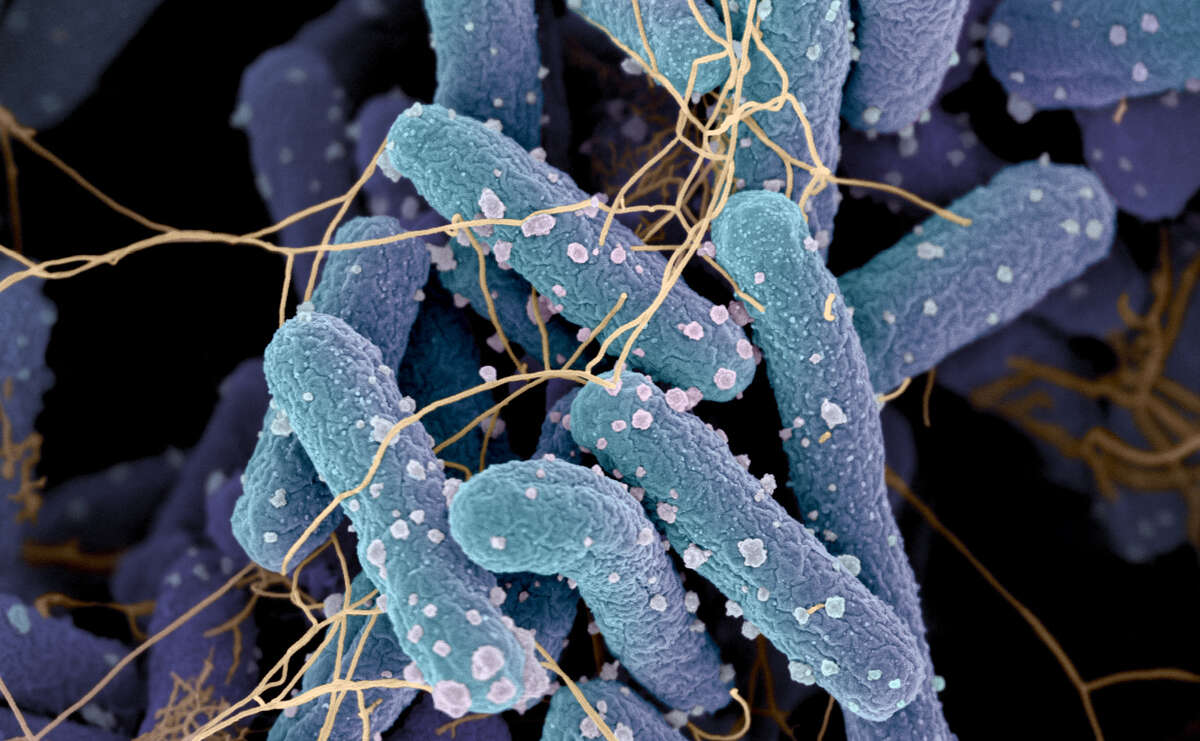Prof. Urs Jenal on the human microbiome
Bacteria, fungi and viruses are usually discreet residents of our bodies, but they influence us throughout our lives. When the harmony in this community – known as the microbiome – is disturbed, allergies, diabetes, bowel inflammation and obesity can ensue.
How many microbial housemates live in and on us?
We carry about two kilograms of bacteria with us. Most of them are found in the intestines. Just one gram of feces contains about one trillion bacteria. Likewise, our skin, mucosal membranes and the respiratory tract are biotopes, in which bacteria, viruses and fungi flourish. An estimated number of some 100 trillion microorganisms inhabit each human being.
Why do we need them?
Over the past ten to fifteen years, we have discovered that these microorganisms and our body interact intensively and that each partner has clear tasks. Humans benefit from their “guests” in many ways.
In what way?
The microbes in the digestive tract carry out more metabolic reactions than our liver. We need the intestinal microflora, for instance, to degrade plant material but also as a training partner for the development of our immune system. A lack of these partners may result in allergies and autoimmune diseases. If the finely tuned balance of the intestinal flora is disturbed, pathogens can quickly gain the upper hand.
What can disturb this balance?
An unhealthy diet can cause chaos in the balance of our gut flora. Diversity and composition of the intestinal microbiota is substantially altered in obese mice and humans. Another important factor that can disturb this delicate balance is the use of antibiotics and this particularly in the first year of our life. For example, the risk of developing asthma later in life seems to depend on the kind of bacteria that colonize the gut during the first few months after birth.
Is it possible to predict the risk for certain diseases by investigating the exact composition of the microbiota?
To predict an individual’s risk of developing a disease based on the gut microorganisms, is not possible today. However, what we already know is that the loss of some specific bacteria in the gut correlates with the incidence of certain diseases.
What does such a loss of diversity in our gut flora indicate?
There are two theories as to why an increasing fraction of the Western world suffers from so called lifestyle diseases like allergies or metabolic diseases. The hygiene theory argues that because of increased hygiene standards, humans no longer sample important microorganisms early in their lives. The theory of the disappearing microbiota argues that we are about to reduce the diversity of our microbiome as a result of a modern lifestyle with altered nutritional habits and advanced health care. People living a more original life like the Yanomami Indians in South America, carry about 40 percent more species of bacteria than we do.
Can I do something good for my bacteria?
Live a healthy life. A balanced diet, plenty of vegetables and plant fibers and some regular work out. The usual advice. However, which food is good for someone seems to be very individual and may depend on the person’s individual microbiome.
Research Group Urs Jenal



